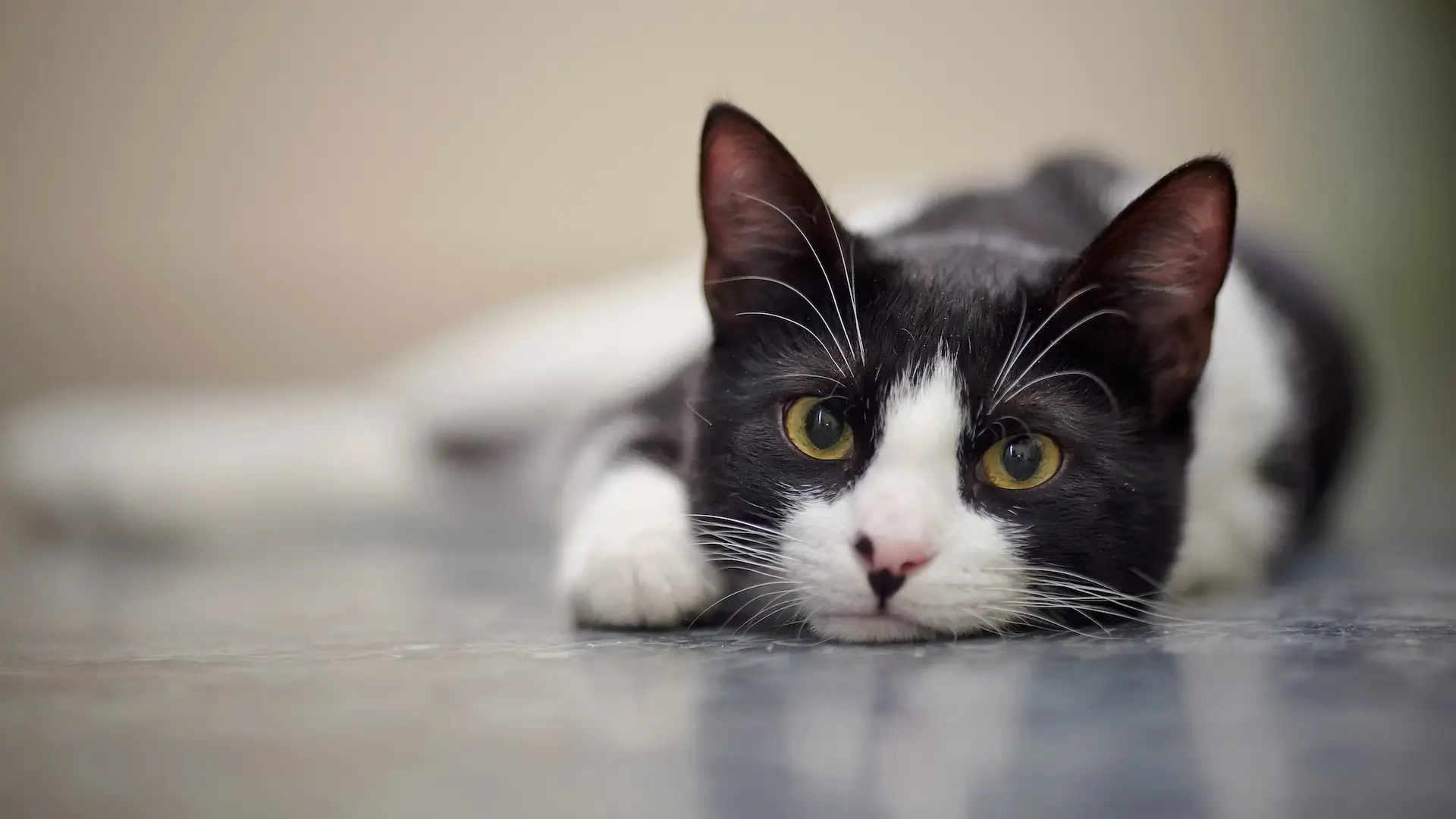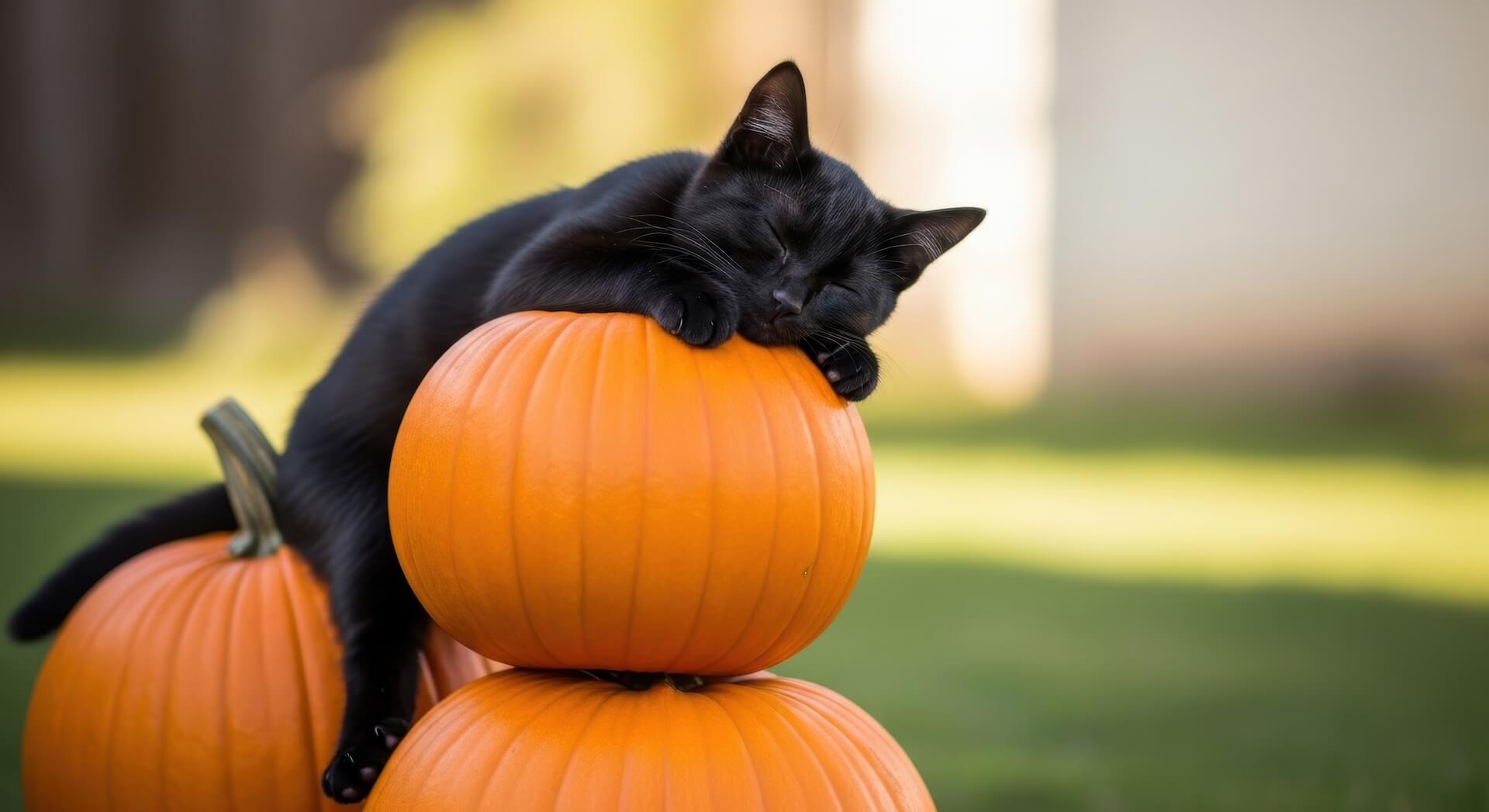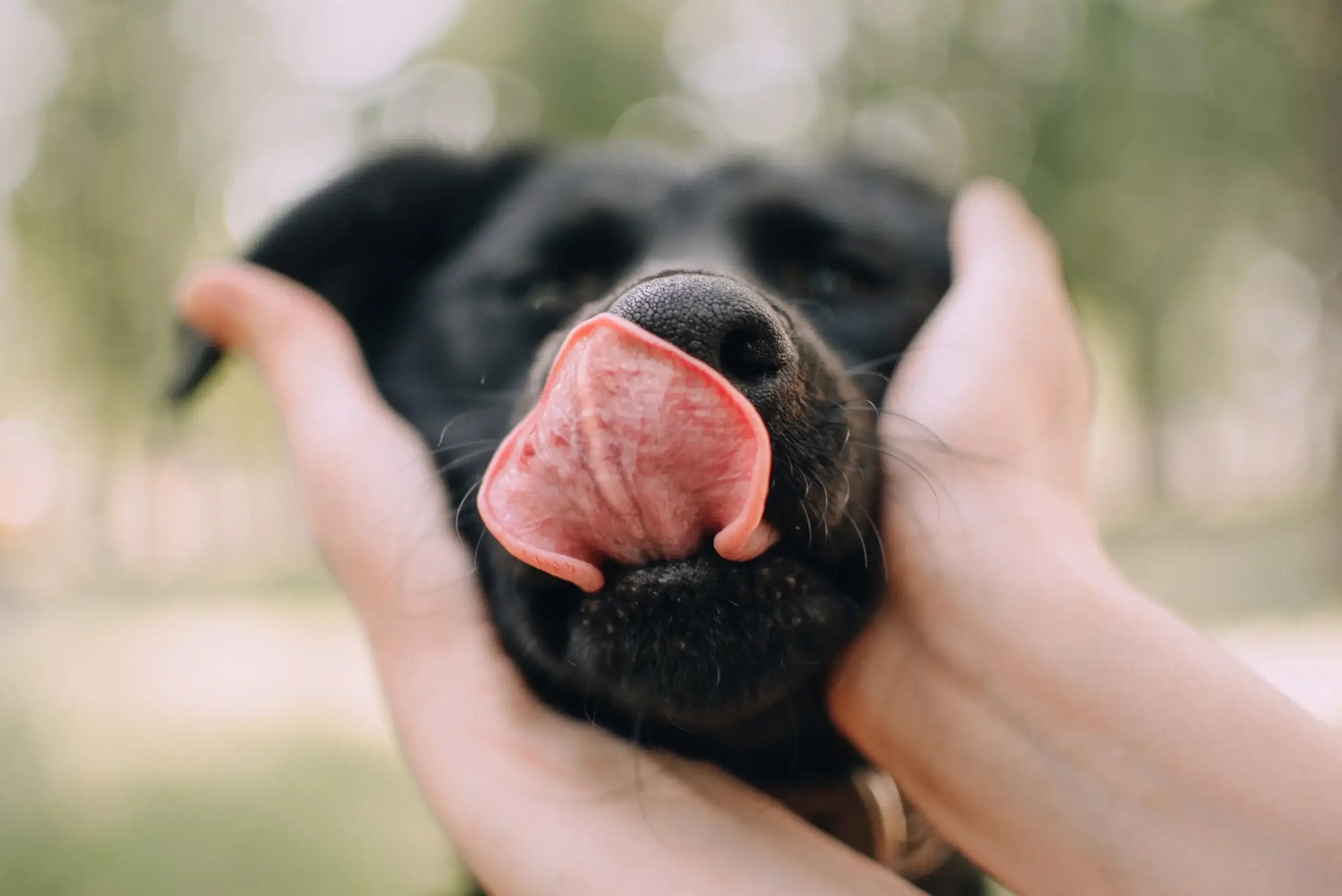Naju Pets | January 27, 2025
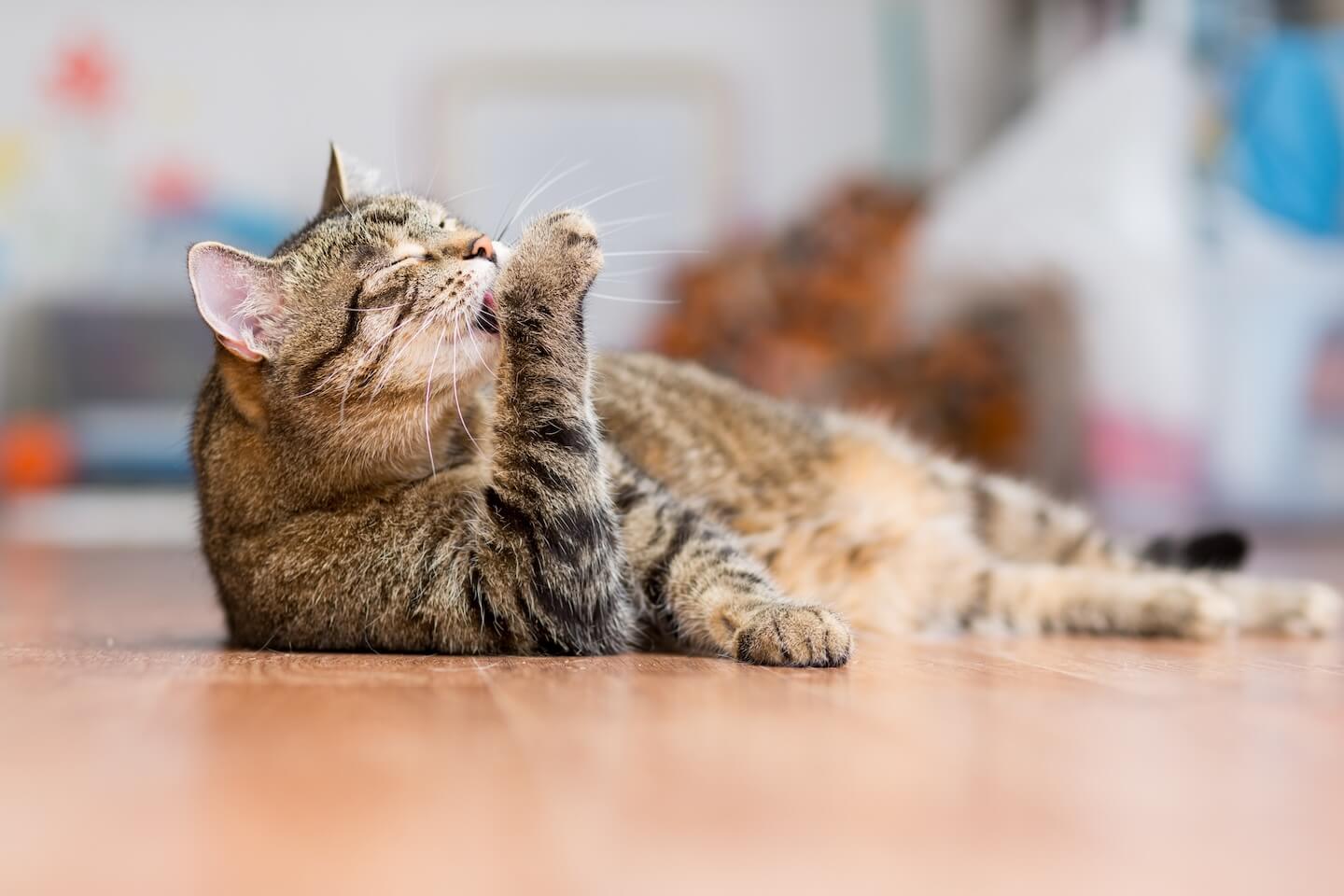
Is Your Cat Grooming Too Much? Here’s What You Need to Know
Cats are naturally meticulous groomers, often spending hours each day licking and cleaning their fur. While some grooming is healthy and necessary, excessive grooming—often called cat overgrooming—can be a sign of underlying issues that may need attention. Watching your beloved pet lick, chew, or pull out fur can be distressing, and it’s natural to wonder if something is wrong.
Here at NaJu Pets, we care deeply about the well-being of all animals and know that overgrooming can indicate physical discomfort, stress, or other health concerns. Our team is dedicated to helping pet owners understand this behavior, so you can take steps to help your cat feel safe, comfortable, and healthy. Let’s explore what cat overgrooming really means, why it happens, and what you can do to help.
What is Cat Overgrooming?
Cat overgrooming is a behavior where a cat grooms itself more than is considered normal, often resulting in visible patches of missing fur, irritated skin, or even scabs. While it’s common for cats to clean themselves throughout the day, overgrooming can become a compulsive behavior, signaling that something isn’t quite right.
When a cat overgrooms, it may:
- Spend an excessive amount of time licking a specific spot.
- Develop bald patches or areas of thinning fur.
- Show signs of skin irritation, such as redness, scabs, or small wounds.
This behavior isn’t just about keeping clean. Overgrooming in cats can be a response to various issues, from stress and anxiety to underlying medical conditions like allergies or skin infections. If left unaddressed, excessive grooming can lead to painful skin problems and infections, which can further impact your cat’s comfort and quality of life.
At NaJu Pets, we understand that your cat’s well-being is a top priority, and we’re here to help you identify whether your cat’s grooming habits are healthy or if they might need extra care and support.
Why Do Cats Overgroom?
Cats may overgroom for various reasons, and it’s often their way of coping with discomfort, stress, or a medical issue. Just as humans might fidget or bite their nails when they’re anxious, cats might turn to grooming as a self-soothing behavior. However, when grooming becomes excessive, it’s important to investigate the root causes to help your cat feel their best. Let’s explore the main reasons behind cat overgrooming, including both psychological and physiological factors.
Stress as a Cause of Overgrooming
One of the most common reasons for excessive grooming in cats is stress. Cats are sensitive creatures who thrive on routine, and even small changes can disrupt their sense of security. When cats feel anxious, grooming acts as a calming mechanism, helping them regain a sense of control.
Common sources of stress that can lead to overgrooming include:
- Changes in environment: Moving to a new home, introducing new furniture, or even changing their favorite resting spots can make some cats feel uneasy.
- Lack of stimulation: Cats need mental and physical enrichment to stay happy. If they’re bored or under-stimulated, they may turn to overgrooming to pass the time.
- Household disruptions: Events like the arrival of a new pet, a baby, or frequent visitors can be stressful for a cat. Even loud noises or unusual scents can create anxiety.
How You Can Help:
If your cat’s excessive grooming seems related to stress, creating a calm, predictable environment can make a world of difference. Offer quiet spaces where your cat can retreat and feel secure. Add engaging toys and playtime to their routine to reduce boredom. Most importantly, spend quality time with your pet to reassure them that they are safe and loved.
Allergies and Skin Issues
Another common reason for cat overgrooming is an allergic reaction. Just like people, cats can develop allergies to a variety of things, including food, fleas, pollen, or household products. When cats experience itching or irritation due to allergies, they may groom excessively to relieve the discomfort.
Types of allergies that can lead to overgrooming:
- Flea allergies: Even a single flea bite can cause intense itching in some cats, leading to continuous licking and biting.
- Food allergies: Some cats are sensitive to certain ingredients in their food, which can cause itchy skin and digestive issues.
- Environmental allergies: Pollens, dust mites, or even chemicals in household cleaners can trigger skin irritation and overgrooming.
How You Can Help:
Recognizing allergy symptoms, like itchy, red skin, digestive upset, or frequent scratching, is the first step. Consulting with a veterinarian is key—they can identify the cause and recommend solutions, like a hypoallergenic diet, flea prevention, or medications to soothe irritation and reduce symptoms.
Other Medical Causes
Sometimes, excessive grooming in cats can be a sign of a medical issue unrelated to stress or allergies. Certain health conditions cause physical discomfort or pain, which may lead cats to lick or chew excessively at specific areas.
Other medical conditions that may result in overgrooming include:
- Parasites: Besides fleas, parasites like mites or ticks can cause intense itching.
- Skin infections: Fungal or bacterial infections can irritate the skin, prompting overgrooming in affected areas.
- Underlying pain: Cats might overgroom near areas where they’re experiencing pain, such as an old injury or sore joint.
How You Can Help:
If your cat’s overgrooming is persistent and you can’t identify the cause, it’s time to seek professional help. A veterinarian can examine your cat, rule out medical issues, and recommend treatments tailored to their needs. Getting to the root of the behavior can make all the difference in helping your cat feel happy and healthy again.
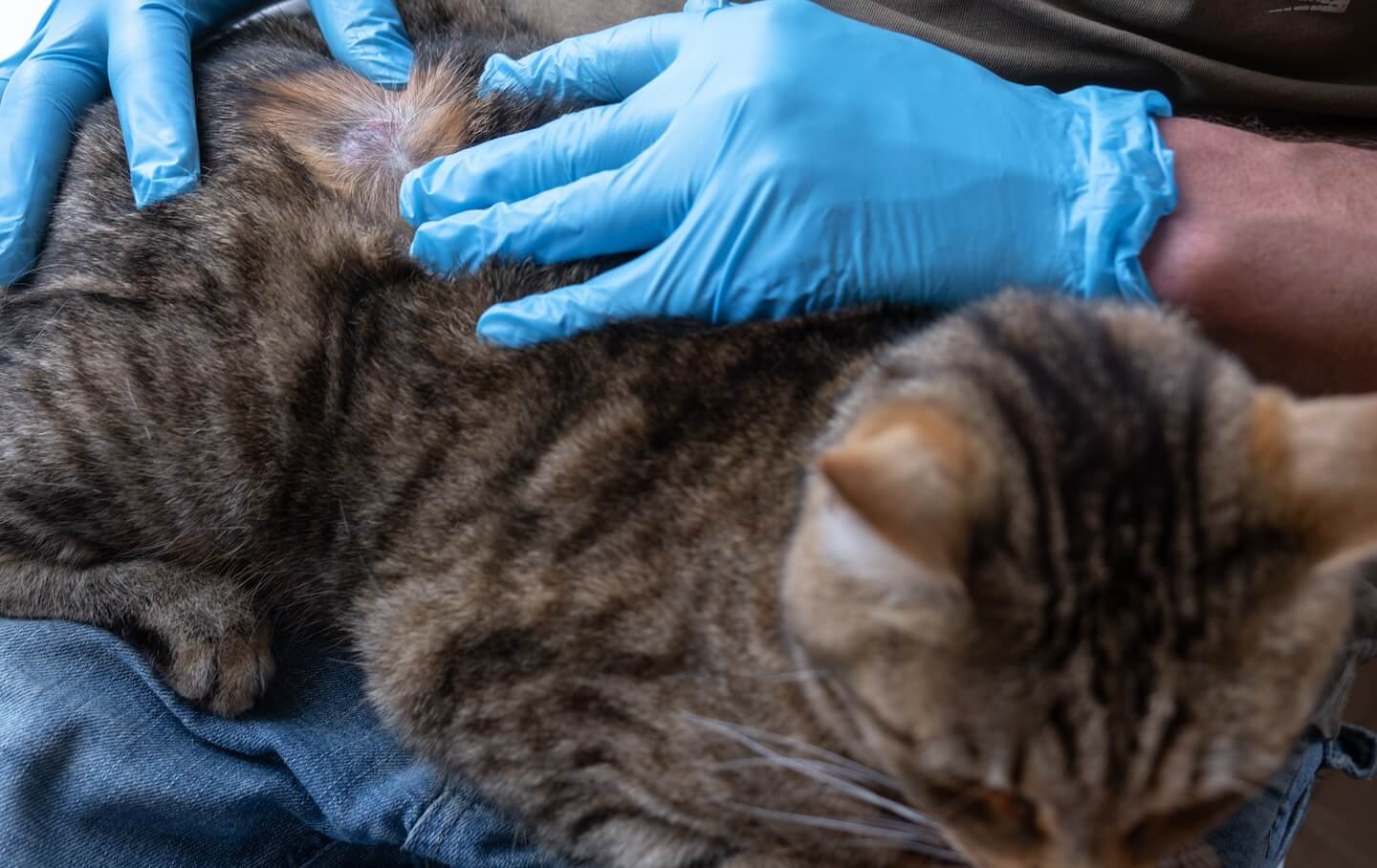
How to Help a Cat That’s Overgrooming: Extra Tips for Cat Parents
If you’re noticing signs of cat overgrooming, like fur biting or excessive licking, there are a few simple things you can try at home to help your cat feel more at ease:
- Create a Cozy Space: Cats feel safest when they have a quiet, private spot just for them. Set up a comfy bed in a peaceful area or a perch by a window. A dedicated spot can help reduce stress-related grooming.
- Keep Them Engaged: Boredom can lead to excessive grooming in cats. Interactive toys, scratching posts, and daily playtime are great ways to keep your cat entertained and distracted from overgrooming.
- Redirect Gently: If you catch your cat overgrooming, try gently redirecting their attention with a favorite toy or a tasty treat. A little distraction can go a long way in breaking the habit.
- Try Calming Aids: For cats prone to stress, calming sprays or pheromone diffusers can create a more relaxing atmosphere, helping to reduce anxiety-driven grooming.
These small adjustments can often make a big difference. And if the overgrooming continues or if you notice skin irritation, a quick vet visit may help uncover and address any underlying issues.
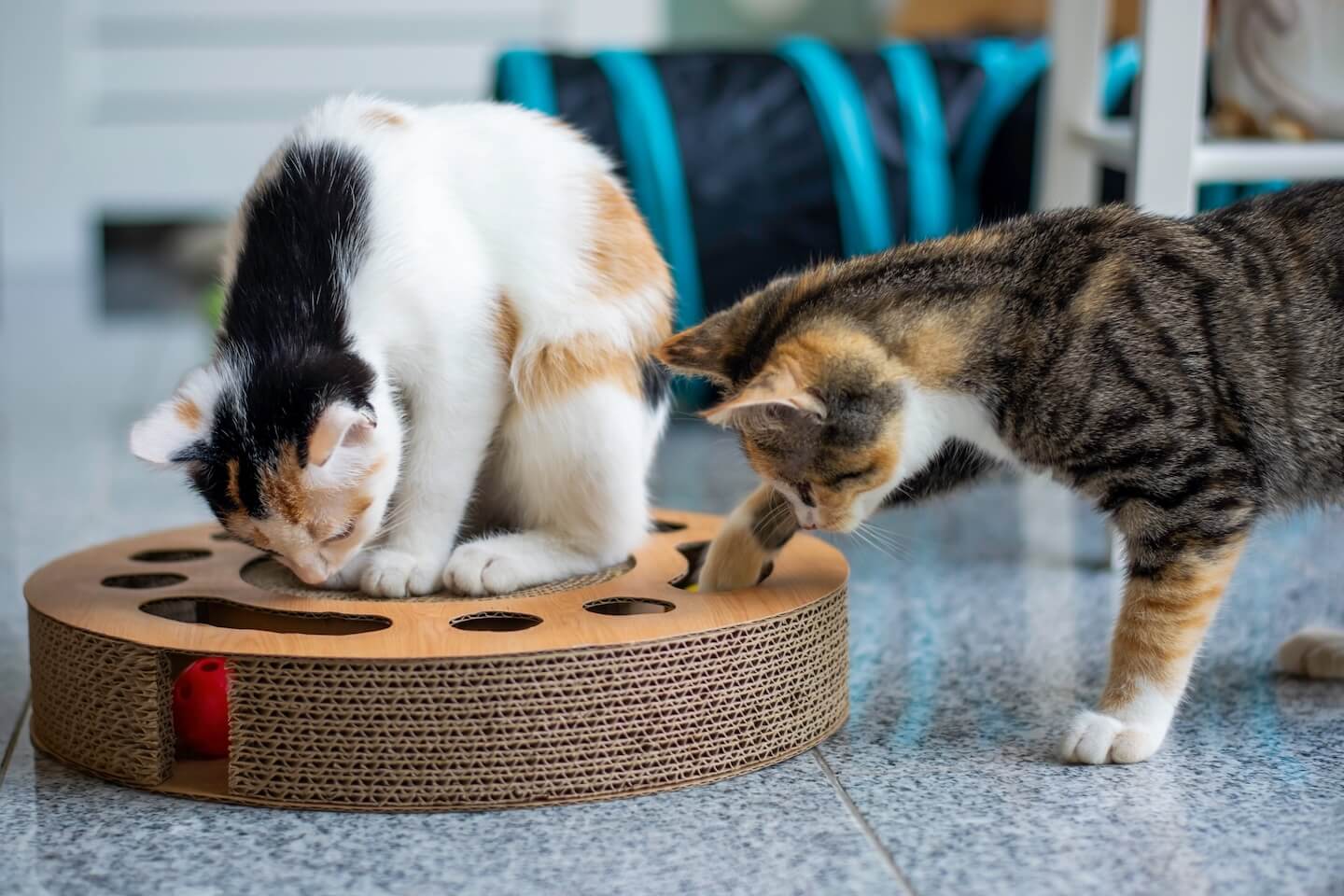
When to See a Veterinarian
While many cases of cat overgrooming can be improved with simple changes at home, there are times when it’s important to seek professional help. A veterinarian can uncover underlying medical or behavioral issues and provide the right treatment to get your cat feeling better.
Consider scheduling a vet visit if you notice:
- Persistent Bald Patches: If your cat’s fur isn’t growing back or the bald areas are spreading, it’s time to consult a vet.
- Skin Irritation or Sores: Red, inflamed, or scabbed skin can indicate infections, allergies, or parasites that need medical attention.
- Unchanged Behavior: If self-help measures like creating a calm environment or using distractions aren’t reducing the grooming, a vet can explore other potential causes.
- Other Symptoms: Keep an eye out for weight loss, changes in appetite, or unusual behavior, which could signal a larger health issue.
Helping Your Cat Feel Their Best
When your cat is grooming excessively, they’re trying to tell you something—and as a loving cat parent, you’re already tuned in to their needs. Whether the cause is stress, allergies, or something else, understanding the reasons behind cat overgrooming is the first step toward helping them feel better.
With a little patience, a lot of love, and some simple changes at home, you can make a world of difference in your cat’s well-being. And when extra help is needed, your trusted veterinarian is there to guide you.
At NaJu Pets, we know how much your cat means to you because we feel the same way about our own pets. With your care and attention, your furry friend can feel happy, safe, and loved—exactly as they deserve. You’ve got this!
